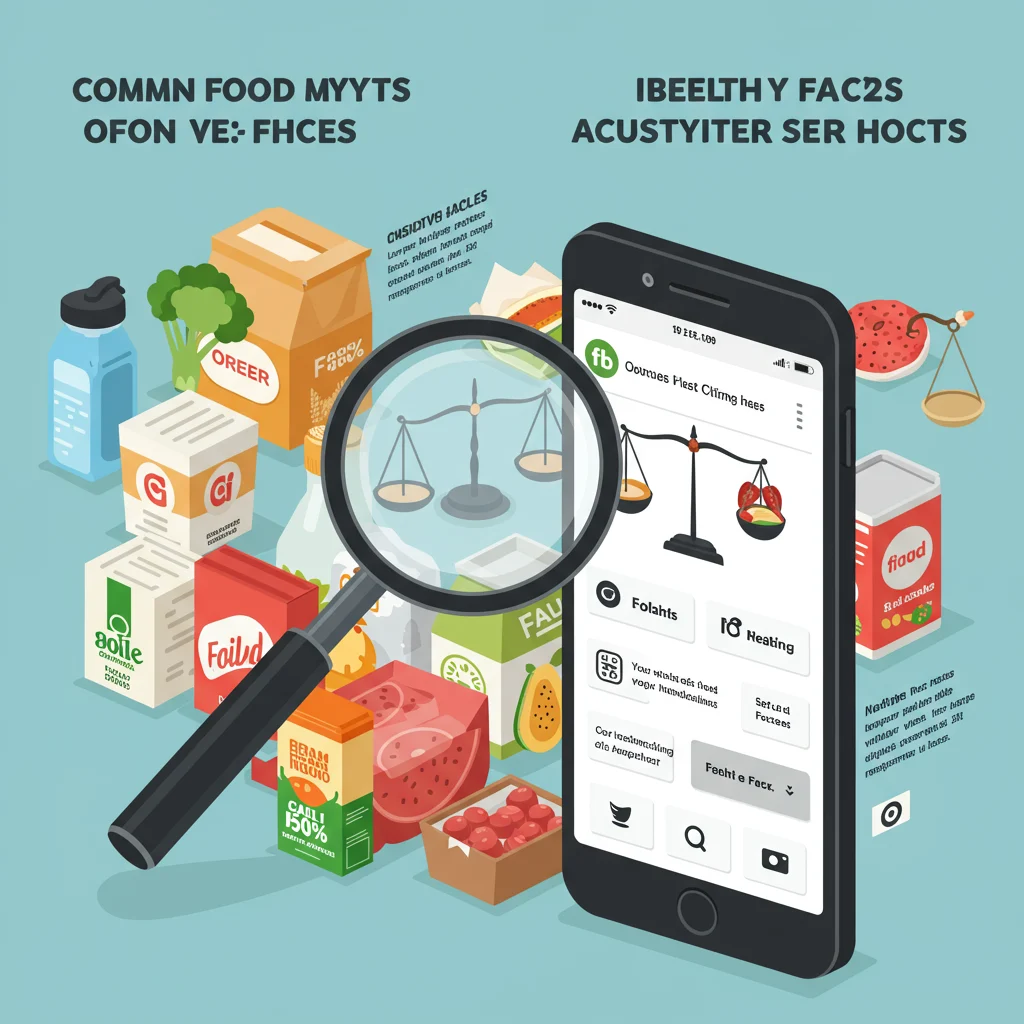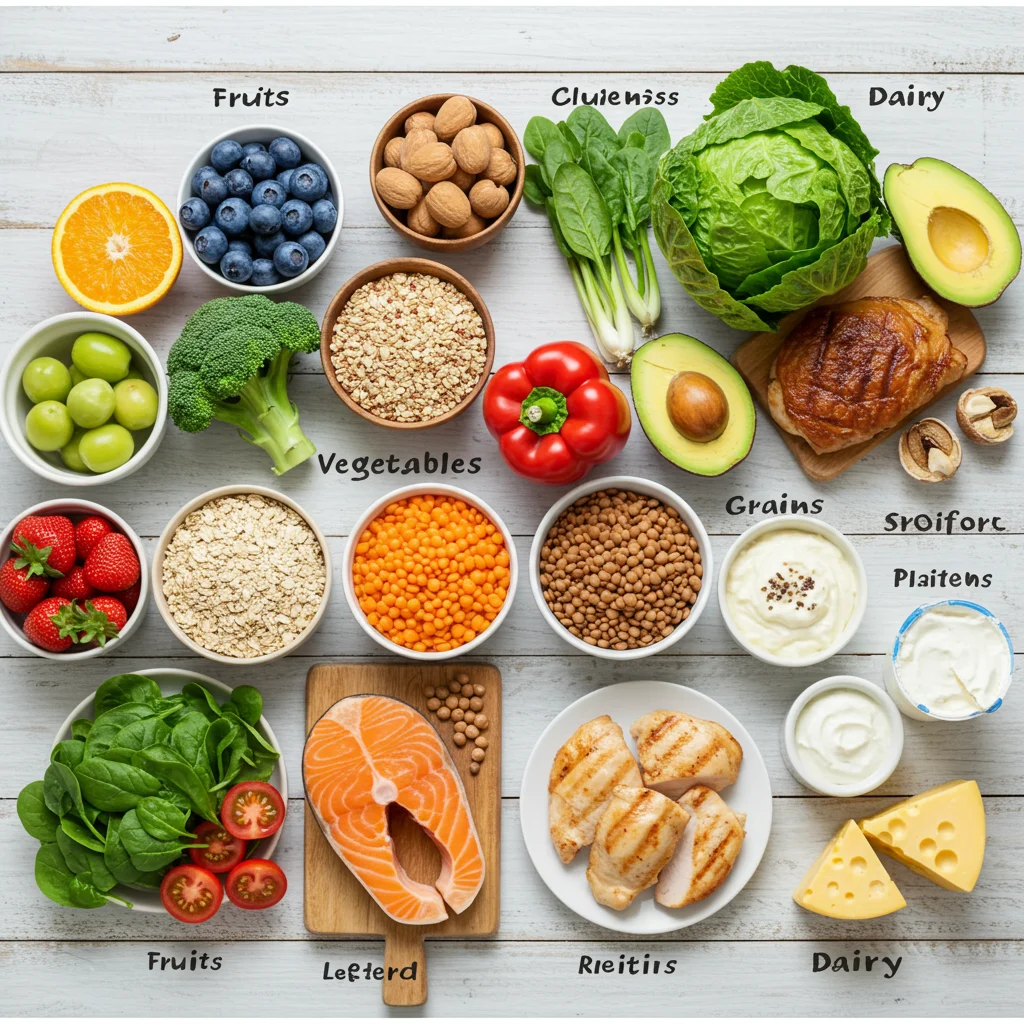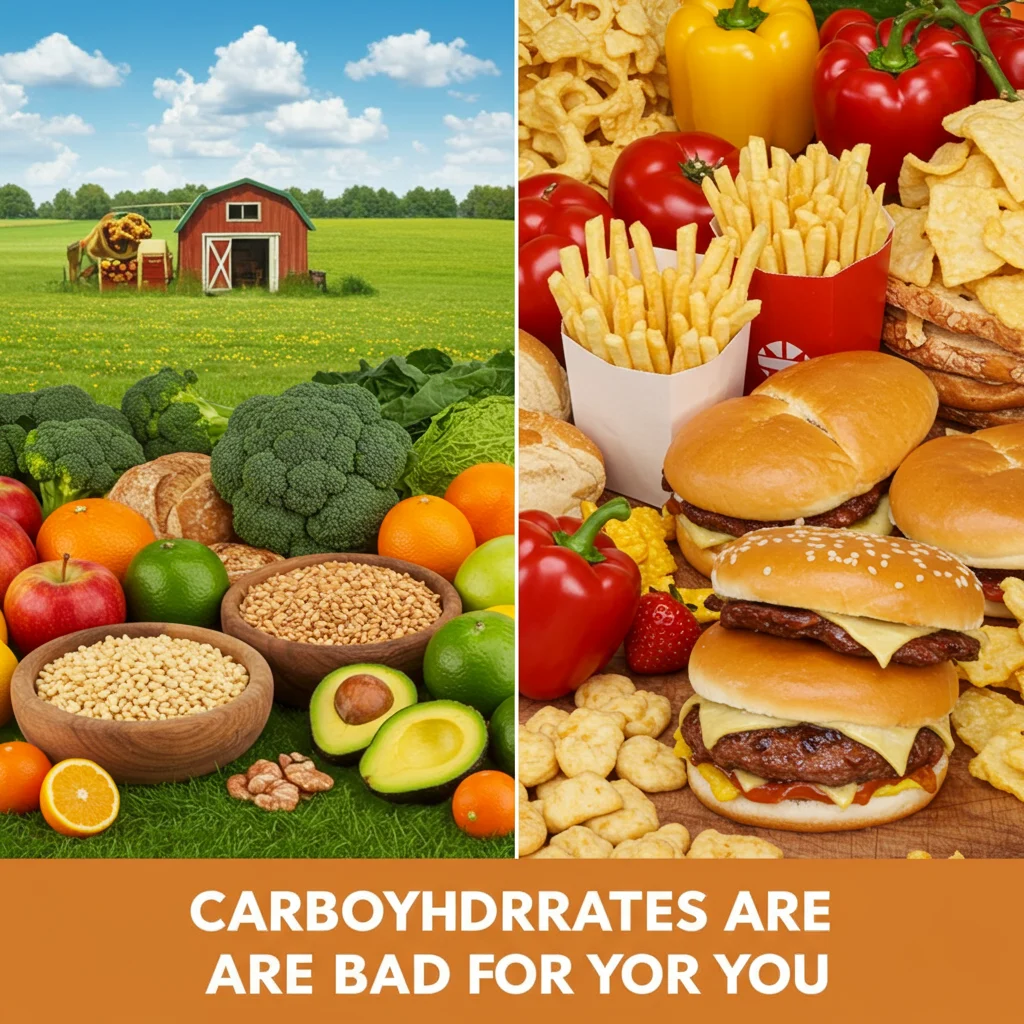Introduction: The Truth Behind Nutritional Myths
Nutrition advice fills our daily lives, yet much of what we hear is based on outdated research, anecdotal stories, or persuasive marketing. These nutritional myths often lead to confusion, frustration, and unhealthy eating habits. To develop a truly balanced diet, it is essential to separate science from fiction and understand what our bodies genuinely need for optimal health.

In this comprehensive guide, we clarify persistent misconceptions and provide evidence-based answers to common questions about food, nutrients, and healthy living.
Why Do Nutrition Myths Persist?
Despite advances in nutritional science, myths continue to circulate due to a combination of factors. Social media amplifies unverified claims, while marketing campaigns promote certain foods or supplements as miraculous solutions. Cultural traditions and family beliefs also play a role, shaping the way we view certain ingredients or diets.

Sometimes, the allure of a quick fix is irresistible. Promises of rapid weight loss or easy health improvements entice us, even when the claims lack substance. This makes it difficult to distinguish between helpful guidance and misleading information.
How to Identify Nutrition Misinformation
Spotting nutrition misinformation requires a critical eye and a willingness to question sources. Sensational headlines, celebrity endorsements, and products that guarantee miraculous results are red flags. Reliable advice is typically grounded in peer-reviewed studies and consensus from reputable organizations.

Always consider the credibility of the source, the presence of scientific references, and whether the advice is consistent with established dietary guidelines. If a claim sounds too good to be true, it often is.
What Is a Balanced Diet?
A balanced diet provides the right proportions of macronutrients, micronutrients, and hydration to support bodily functions, energy needs, and long-term health. It emphasizes variety, moderation, and nutrient density.

Key Components of a Balanced Diet
To achieve nutritional balance, we focus on:
- Consuming a variety of whole foods from all food groups
- Including appropriate amounts of carbohydrates, proteins, and fats
- Ensuring sufficient intake of vitamins and minerals
- Staying properly hydrated
Macronutrients Explained: Carbs, Proteins, and Fats
Macronutrients are the nutrients we need in larger amounts. Carbohydrates supply quick energy, proteins build and repair tissues, and fats support cell structure and hormone production. Balancing these is key for sustained health and vitality.
Micronutrients: Essential Vitamins and Minerals
Micronutrients include vitamins such as A, C, D, and the B-complex, and minerals like calcium, iron, and potassium. Though needed in smaller quantities, they are vital for immunity, bone strength, and overall wellbeing.
Hydration: The Role of Water in Nutrition
Water is fundamental to all bodily processes, from digestion to temperature regulation. Maintaining adequate hydration supports metabolism, nutrient absorption, and cognitive function. The sensation of a cool glass of water can be especially refreshing after physical activity or during warm weather.
Myth #1: Carbohydrates Are Bad for You
Carbohydrates are often demonized, but they are a crucial energy source for the body and brain. Misunderstanding the role of carbs can lead to unnecessary dietary restrictions and fatigue.

Why Do Carbs Have a Bad Reputation?
Low-carb trends and fad diets have painted carbohydrates as the main culprit behind weight gain. However, these claims often overlook the distinction between types of carbs and their respective effects on health.
Simple vs. Complex Carbohydrates
Simple carbohydrates, such as those found in sugary snacks and soft drinks, are quickly digested and can spike blood sugar. In contrast, complex carbohydrates like whole grains, legumes, and vegetables break down more slowly, providing steady energy and essential fiber.
How Many Carbs Do You Really Need?
The ideal amount of carbohydrates varies based on age, activity level, and individual health needs. Most dietary guidelines recommend that 45-65% of daily calories come from carbs, prioritizing complex sources for lasting energy and digestive health.
Myth #2: All Fats Should Be Avoided
Many people believe that all dietary fats are harmful, but this oversimplification ignores the benefits of healthy fats and the dangers of eliminating them from the diet.

Types of Dietary Fats: Good vs. Bad
Fats can be classified into saturated, unsaturated, and trans fats. Unsaturated fats, found in nuts, seeds, and fish, are beneficial for heart health. Saturated and trans fats, often present in processed foods, should be limited due to their association with cardiovascular disease.
How Do Healthy Fats Benefit the Body?
Healthy fats support brain function, hormone production, and the absorption of fat-soluble vitamins. Foods like avocados, olive oil, and fatty fish not only enhance flavor but also contribute to satiety and overall wellbeing.
Sources of Healthy Fats
To incorporate beneficial fats, we recommend:
- Adding nuts and seeds to salads or yogurt
- Using olive oil for cooking and dressings
- Including fatty fish such as salmon or sardines in your weekly meals
Myth #3: High-Protein Diets Are Always Better
Protein is essential for muscle maintenance and repair, but excessive intake does not guarantee better health or faster weight loss. Balance is key.

How Much Protein Do You Really Need?
Most adults require 0.8-1.0 grams of protein per kilogram of body weight daily. Athletes or those with specific health conditions may need slightly more, but consistently exceeding these amounts can strain kidney function and displace other vital nutrients.
Risks of Excessive Protein Intake
Overconsumption of protein can lead to dehydration, increased calcium loss, and stress on the kidneys. It may also crowd out other important foods, reducing dietary variety and fiber intake.
Best Sources of Protein for a Balanced Diet
Quality protein sources include lean meats, fish, eggs, legumes, tofu, and dairy products. For those following plant-based diets, a wide variety of beans, lentils, and seeds can provide complete amino acid profiles, as we discuss in our overview of top vegan and vegetarian food tours.
Myth #4: You Must Avoid Gluten for Better Health
The popularity of gluten-free diets has led many to believe that gluten is universally harmful. In reality, gluten only poses risks for specific individuals.

Who Should Actually Avoid Gluten?
People with celiac disease, wheat allergy, or non-celiac gluten sensitivity must avoid gluten to prevent adverse reactions. For the majority of the population, gluten is safe and provides no inherent health risks.
Is Gluten Harmful for Most People?
There is no scientific evidence linking gluten consumption to health problems in people without gluten-related conditions. Eliminating gluten unnecessarily can reduce dietary variety and fiber intake.
Gluten-Free Diets: Pros and Cons
While gluten-free diets are essential for some, they may lead to deficiencies in B vitamins and fiber if not carefully planned. Many gluten-free products are highly processed and lack nutritional value, so whole, naturally gluten-free foods are preferable.
Myth #5: Sugar Is Always the Enemy
Sugar is often blamed for a host of health issues, but context and quantity matter. Not all sugars are created equal, and moderate consumption can fit into a balanced diet.

Natural vs. Added Sugars: What’s the Difference?
Natural sugars are found in fruits, vegetables, and dairy, accompanied by fiber, vitamins, and minerals. Added sugars, on the other hand, are incorporated during processing and provide empty calories without nutritional benefits.
How Much Sugar Is Too Much?
The American Heart Association recommends limiting added sugars to under 25 grams per day for women and 36 grams for men. Consuming excessive added sugars can lead to weight gain, dental problems, and increased risk of chronic diseases.
Hidden Sources of Added Sugar
Many processed foods, such as condiments, breads, and sauces, contain hidden sugars. Reading nutrition labels carefully helps us identify and reduce unnecessary sugar intake, supporting long-term health.
Myth #6: Supplements Are Necessary for Everyone
Supplements can be helpful in certain situations but are not a universal requirement. Whole foods remain the best source of most nutrients.

When Are Supplements Actually Needed?
Supplements may be necessary for specific populations, such as:
- Pregnant women (folic acid, iron)
- Older adults (vitamin D, B12)
- Individuals with diagnosed deficiencies or restricted diets
Risks of Relying on Supplements
Overuse of supplements can cause toxicity and interfere with nutrient absorption. It is easy to exceed safe limits when taking multiple products, especially without professional guidance.
Whole Foods vs. Supplements: Which Is Better?
Whole foods provide a complex matrix of nutrients, fiber, and phytochemicals that supplements cannot replicate. Whenever possible, we should prioritize food sources over pills to support overall health and satisfaction.
Myth #7: Eating Late at Night Causes Weight Gain
The timing of meals has less impact on weight than total calorie intake and food quality. Eating late at night does not inherently cause weight gain, but certain habits may contribute to excess calories.

Does Meal Timing Affect Metabolism?
Our metabolism does not dramatically slow down in the evening. However, late-night eating can lead to overeating, especially if we choose calorie-dense snacks out of boredom or fatigue.
What Matters More: Calories or Timing?
Total calorie consumption and nutrient balance are more influential than the clock. Consuming more calories than we burn, regardless of timing, leads to weight gain.
Healthy Late-Night Snack Options
When hunger strikes after dinner, opt for:
- Greek yogurt with berries
- Whole grain toast with nut butter
- Vegetable sticks with hummus
Myth #8: Detox Diets Cleanse Your Body
Detox diets promise to rid the body of toxins, but our bodies are naturally equipped to handle this task without extreme interventions.

How Does the Body Naturally Detoxify?
The liver, kidneys, lungs, and skin work continuously to eliminate waste products and toxins. Hydration, a fiber-rich diet, and regular physical activity support these natural processes.
Are Detox Diets Effective or Harmful?
Most detox diets lack scientific backing and may even be harmful, leading to nutrient deficiencies, dehydration, or digestive upset. Quick-fix cleanses are unnecessary and unsustainable.
Safer Alternatives to Detox Diets
Instead of restrictive cleanses, focus on:
- Eating a variety of fruits and vegetables
- Staying well-hydrated
- Engaging in regular physical activity
For those interested in holistic wellness, practices like yoga and mindful movement, as described in our Nepal yoga retreat guide, can support overall health without extreme diets.
Myth #9: Dairy Is Essential for Strong Bones
While dairy products are a convenient source of calcium and vitamin D, they are not the only path to bone health. Many individuals thrive without dairy by choosing alternative sources.

Other Sources of Calcium and Vitamin D
Calcium is also found in leafy greens, fortified plant milks, almonds, and tofu. Vitamin D can be synthesized through sunlight exposure or obtained from fortified foods and supplements when necessary.
Is Dairy Necessary for Everyone?
Some populations, such as those with lactose intolerance or milk allergies, must avoid dairy. For these individuals, fortified alternatives and balanced nutrition are vital for bone strength.
Lactose Intolerance and Dairy Alternatives
Lactose-free milks, soy beverages, and nut-based products offer comparable nutrition without digestive discomfort. Exploring different options ensures everyone can meet their needs comfortably.
Myth #10: Plant-Based Diets Lack Protein
The belief that plant-based diets are insufficient in protein is outdated. With careful planning, plant eaters can easily meet—and even exceed—their protein requirements.

Top Plant-Based Protein Sources
Excellent sources include lentils, beans, chickpeas, tofu, tempeh, quinoa, and seeds. These foods provide not only protein but also fiber and phytonutrients.
How to Meet Protein Needs on a Plant-Based Diet
Diversifying protein sources throughout the day ensures all essential amino acids are consumed. Including a range of legumes, whole grains, and nuts supports muscle health and energy.
Combining Foods for Complete Proteins
Pairing foods such as rice and beans or hummus and whole wheat pita creates complete protein profiles. Experiencing new plant-based dishes, like those featured in our Mayan Pepian cooking class, can make plant-based eating both nutritious and exciting.
Myth #11: Eating Fat Makes You Fat
The notion that dietary fat directly translates to body fat is a simplification. The type and quantity of fat—and the overall context of the diet—matter most.

The Science Behind Dietary Fat and Weight Gain
Consuming healthy fats in moderation does not cause weight gain. It is excess calorie intake from any source, not just fat, that leads to increased body fat.
Which Fats Should You Limit?
Trans fats and excessive saturated fats should be minimized due to their link with heart disease. Instead, focus on unsaturated fats from plant and marine sources.
Balancing Fats in Your Daily Diet
Including a balance of fats enhances flavor, texture, and satiety. For a deeper understanding of how specific foods contribute to a balanced diet, our post on Parmigiano Reggiano and Italian culinary traditions offers a unique perspective on incorporating dairy in moderation.
Myth #12: Fresh Produce Is Always Healthier Than Frozen or Canned
While fresh fruits and vegetables are often ideal, frozen and canned options can be just as nutritious—and sometimes even more so.

Nutritional Comparison: Fresh vs. Frozen vs. Canned
Frozen produce is typically picked and processed at peak ripeness, locking in nutrients. Canned vegetables may lose some vitamins during processing, but they remain viable choices, especially when fresh options are unavailable.
When Is Frozen or Canned Produce a Good Choice?
During winter months or in areas with limited access to fresh produce, frozen and canned varieties help maintain a varied and balanced diet. Rinsing canned vegetables can reduce sodium content, making them a healthier option.
Tips for Choosing the Healthiest Produce Options
Choose:
- Frozen fruits and vegetables without added sauces or sugars
- Canned options labeled “low sodium” or “no salt added”
- Fresh items in season for the best taste and value
Myth #13: You Must Eat Breakfast to Be Healthy
Breakfast is not universally essential. Whether or not to eat it depends on individual preferences, schedules, and health goals.

Is Breakfast Really the Most Important Meal?
Some people benefit from breakfast, while others feel better waiting until later to eat. The key is overall dietary quality and consistency.
Who Benefits Most from Eating Breakfast?
Children, adolescents, and those with demanding physical or mental schedules often perform better with a morning meal. Breakfast can stabilize blood sugar and improve concentration.
Healthy Breakfast Ideas for Different Lifestyles
Consider:
- Oatmeal with fruit and nuts for lasting energy
- Whole grain toast with avocado and eggs
- Smoothies packed with leafy greens, berries, and protein powder
Myth #14: Low-Calorie Diets Are the Best Way to Lose Weight
Extreme calorie restriction often leads to short-term loss and long-term frustration. Sustainable weight management emphasizes gradual change and nutrient-rich foods.

Why Extreme Calorie Restriction Can Backfire
Very low-calorie diets can slow metabolism, reduce muscle mass, and increase cravings. These effects make it harder to maintain weight loss over time.
How to Create a Sustainable Weight Loss Plan
Set realistic goals, prioritize whole foods, and incorporate physical activity. Consistency and patience are far more effective than drastic measures.
The Role of Nutrient Density in Weight Management
Choosing foods high in nutrients but moderate in calories—such as vegetables, lean proteins, and whole grains—supports satiety and long-term success. As experts often say:
“The best diet is the one you can maintain for life—one that nourishes your body, fits your lifestyle, and brings you joy.”
Myth #15: Organic Foods Are Always Healthier
Organic foods are often viewed as superior, but the health differences are generally modest. The choice between organic and conventional depends on personal values, budget, and availability.

What Does ‘Organic’ Really Mean?
Organic products are grown without synthetic pesticides or fertilizers, using environmentally friendly methods. The label does not guarantee higher nutritional value.
Are There Nutritional Differences in Organic vs. Conventional Foods?
Some studies suggest minor differences in certain nutrients, but the overall impact on health is minimal. Washing all produce thoroughly is more important than the organic label alone.
When Should You Choose Organic?
Choosing organic may reduce exposure to certain pesticides, which can be especially important for young children and pregnant women. However, eating a wide variety of fruits and vegetables—organic or not—remains the top priority.
How to Build a Truly Balanced Diet: Practical Tips
Building a balanced diet is an ongoing process that combines knowledge, planning, and self-awareness. Small, consistent changes add up to meaningful results.

Meal Planning Strategies for Busy People
Try:
- Batch cooking grains and proteins for the week
- Prepping vegetables in advance for quick meals
- Using a shopping list to minimize impulse purchases
On-the-go travelers can also plan their trip around food experiences, using platforms like Viator to find tours that accommodate special dietary needs.
How to Read Nutrition Labels Effectively
Look beyond marketing buzzwords and focus on:
- Serving size and total calories
- Amounts of saturated fat, sodium, and added sugars
- Presence of fiber, vitamins, and minerals
Mindful Eating: Why It Matters
Mindful eating encourages us to slow down, savor each bite, and listen to hunger cues. This approach fosters a healthier relationship with food and supports long-term wellbeing. For inspiration on connecting with local ingredients and traditions, our Ubud private tour review highlights the joy of mindful culinary exploration.
Common Pitfalls to Avoid When Pursuing a Balanced Diet
Common mistakes include relying on fad diets, skipping meals, overemphasizing single nutrients, or turning to quick fixes. Avoid extremes and focus on a varied, moderate approach. Remember, balance and consistency are more important than perfection.

How to Overcome Nutrition Myths in Daily Life
To overcome misinformation, we recommend:

- Seeking advice from registered dietitians or credible sources
- Questioning sensational claims and viral diet trends
- Sharing accurate information with friends and family
Building a supportive environment can make healthy choices easier and more enjoyable.
Frequently Asked Questions About Balanced Nutrition
Q: Can I get all my nutrients from food alone?
A: Most individuals can meet their needs through a varied diet, but some may require supplements due to specific health conditions or dietary restrictions.

Q: Are cheat days okay?
A: Occasional indulgences are part of a balanced approach. Focus on overall patterns rather than individual meals.
Q: What about superfoods?
A: No single food holds the key to health. A diverse, colorful plate is more beneficial than chasing the latest “superfood.”
How to Book on Viator
If you are looking to enrich your understanding of nutrition through culinary experiences, consider booking activities through Viator. Their platform offers a range of food tours, cooking classes, and cultural excursions that can help you appreciate healthy eating from a global perspective.

To find tours or plan your trip with dietary preferences in mind, simply visit Viator, browse the available options, and book directly for a seamless experience.
Conclusion: Embracing Evidence-Based Nutrition
Staying informed and open-minded empowers us to make choices based on facts, not fads. By questioning myths and prioritizing balanced, enjoyable eating patterns, we can foster lifelong health and happiness. At Unisho, we are committed to helping you thrive with practical, trustworthy nutrition advice. For more tips and resources, visit Unisho today.

Further Reading and Resources
For a deeper dive into global food traditions and plant-based nutrition, explore our articles on vegan and vegetarian food tours and Mayan cooking classes. Expanding your culinary horizons can make healthy eating both accessible and enjoyable.

Disclaimer: This information is accurate to the best of our knowledge; however, there may be changes or mistakes. Please verify exact details on the Viator booking page.

